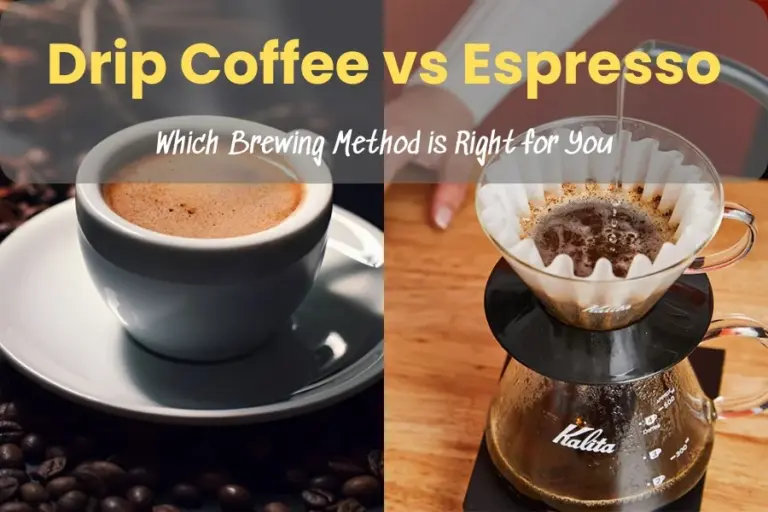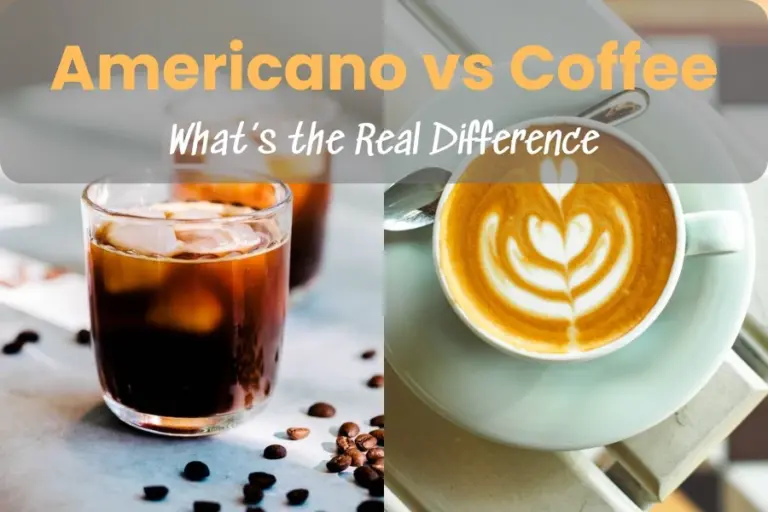Instant Coffee vs Ground Coffee: Which Brew Is Better For You?
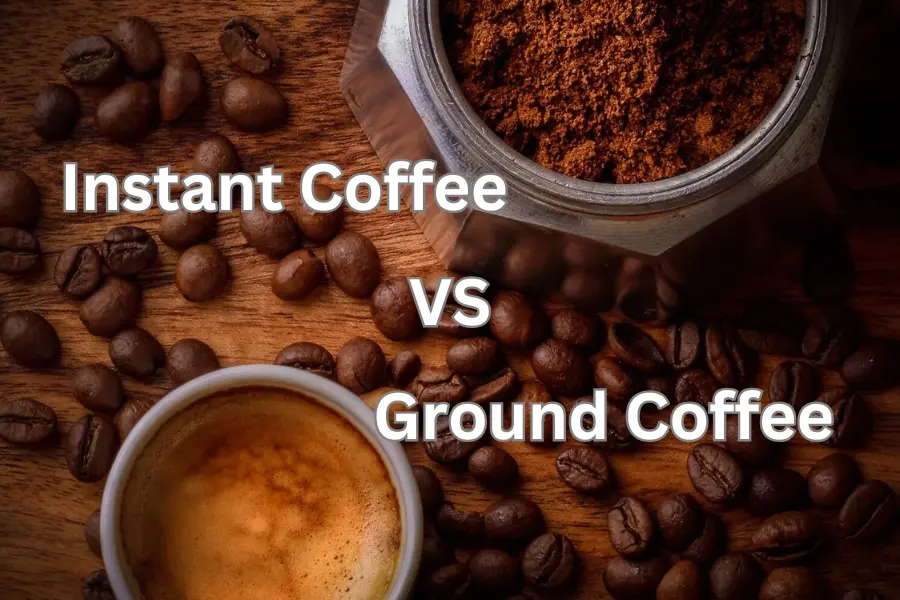
Coffee is probably one of the most consumed beverages in the world which comes in all different forms ranging from culture to lifestyle. From options for quick caffeine boosts to enjoying a deep, rich, and well-brewed coffee cup, there is something here just for you. So, when there are plenty of options: instant coffee vs ground coffee?
Taking a closer look at the key differences between instant and ground coffee, this guide should help you find exactly what it is that matches your taste and routine. As such, whether you are a newbie or a coffee aficionado, there is a pour made just for you.
What is Instant Coffee?
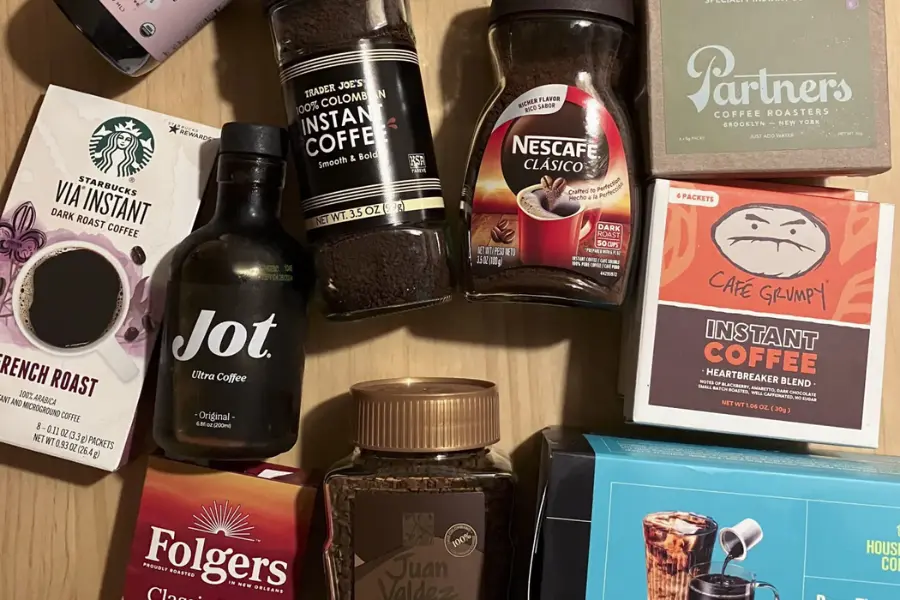
Instant coffee is a type of coffee that is brewed with highly roasted and grounded beans, which can be rehydrated. Specially hot water is added to it and the coffee dissolves instantly, so you get a quick fix of rise me up. This type of coffee is loved because it does not need a coffeemaker or espresso machine to make.
Instant coffee is made by brewing ground coffee beans and then removing the water so that all you are left with is concentrated powder. It can be stored for ages and maintains its flavor, although some people claim that it has a slightly more pronounced taste compared to freshly brewed coffee.
What is Ground Coffee?
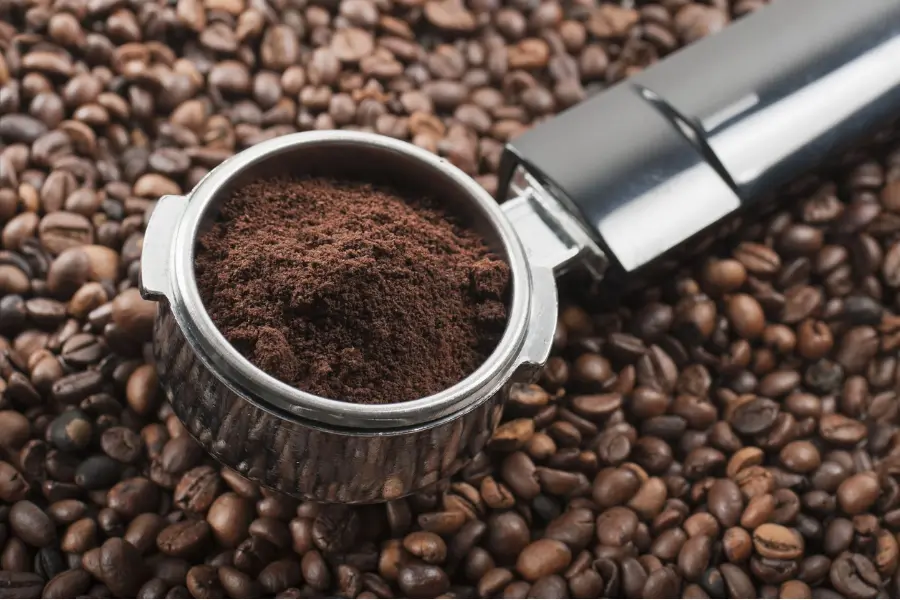
Ground coffee is roasted, ground-down beans that have transformed into tiny pieces of coffee you can brew and drink. On the other hand, ground coffee must have hot water boiled over it with devices such as a coffeemaker, manual press, or espresso machine. Exposing the bitter but seasoned bean to steam, unlocks a more complex flavor of coffee aromas all locked within them.
Ground — the size of coffee particles ranges from fine to coarse, depending on how they are ground. Espresso machines require finer grounds and the French press coarser. For people who love to brew the coffee themselves and experience a freshly made taste of their beans, ground form is what suits this well as it retains those natural oils in beans that give such complex flavors.
What Are The Differences Between Instant Coffee vs Ground Coffee?
What are the differences between the below famous coffee? This is a complete guide to understanding how coffee capsules differ in taste, aroma, caffeine level, and accessibility.
Taste and Amora

Compared to freshly brewed coffee, they taste very differently. Firstly, instant coffee is brewed and then dehydrated into a powder form for easy storage. Its flavor is usually mild and can taste slightly acidic or metallic. This removes some of the depth, leaving instant coffee with a lighter more direct taste. When compared to instant, ground coffee has a bolder, more complex taste with notes of earthiness. Taste is affected by bean type and roasting level, meaning ground coffee enjoys more personality as well as a fuller body.
The scent always differentiates too. The scent of instant coffee is subtle and does not last as long because some natural oils are lost during the process. Loose coffee, especially freshly brewed, has a pleasant aroma of chocolate and fruit or nuts (depending on the beans used). This smell contributes to the fresh and deliciously roasting ground coffee experienced by those who adore drinking ground brewing.
Preparation Process

Instant and ground coffee are essentially prepared somewhat differently. Instant coffee is simply coffee brewed into a liquid and then dehydrated to powder or granules. Each sachet is made using powdered collagen which easily dissolves in hot water. To sum it up, a cup of coffee is a very quick and convenient method for people with busy lives or low equipment as you do not need any special brewing gear.
The preparation does get a bit more complicated with ground coffee. The crushed coffee beans are put through brewing methods such as drip machines, French Press, or espresso machines. Brewing, on the other hand, is just hot water taking its time to remove flavors from beans in an enriching way so as not to miss requisite amounts of a bean’s rich oils and aromas. It may be slower and you might need more equipment. However, ground coffee gives a better and fresher taste that makes the process onerous for coffee lovers worth it.
Caffeine Content

The nutritional content of instant coffee and ground coffee is generally low in calories, with both types containing less than 5 calories per serving before adding any extras like milk or sugar. Instant coffee typically contains about 30 to 90 mg of caffeine per serving, depending on the brand and preparation method.
On the other hand, ground coffee usually contains more caffeine, ranging from about 95 to 200 mg per serving, depending on how it is brewed. It is rich in antioxidants, which can provide health benefits, such as reducing inflammation and supporting heart health.
Overall, while both instant and ground coffee are low in calories, ground coffee tends to have higher caffeine and antioxidant levels, making it a more nutritious option for coffee lovers.
Shelf Life
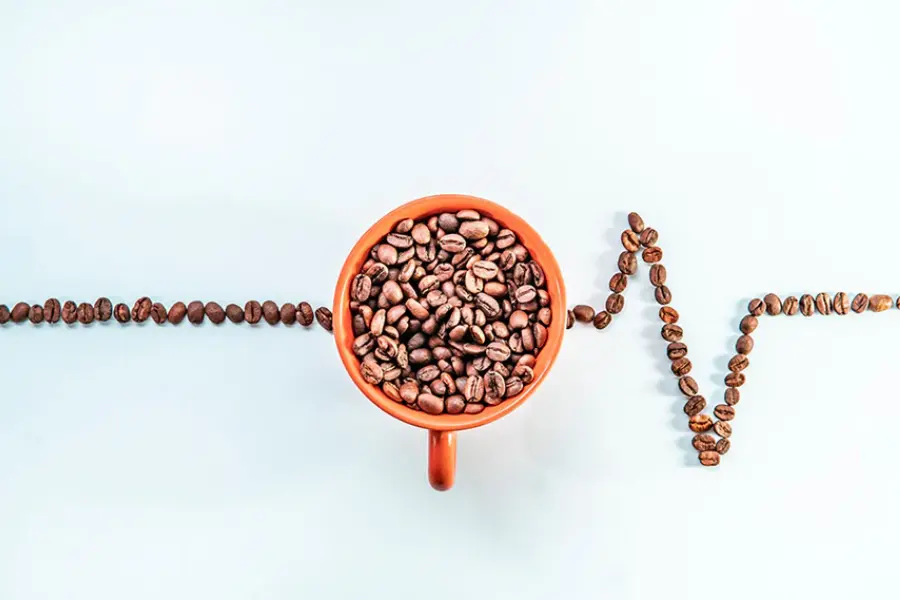
One of the strong sides of instant coffee is that this coffee can stay on the shelf much longer than ground coffee. The latter one should be used up as quickly as possible, because otherwise, it may lose its flavor and aroma.
If you want the freshest taste, it’s best to grind whole beans right before brewing. Try using it within a month if you buy pre-ground coffee to keep it fresh for at least that period.
Price

Another reason instant coffee is so popular is that it is generally much cheaper compared to specialty ground or whole coffee beans. However, with single-origin specialty coffees, the often higher prices reflect fair wages paid to growers and extra care in producing high-quality beans. In this case, you truly get what you pay for richer flavor and support for ethical, sustainable farming practices.
Type of Beans
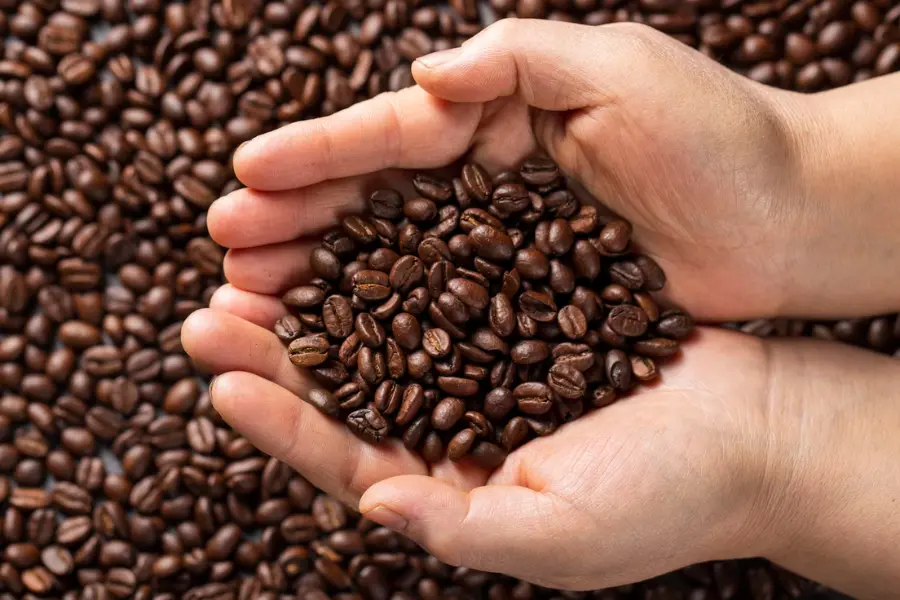
Instant coffee is primarily made from the lower quality Robusta beans, while ground coffee usually consists of Arabica beans. Some supermarket varieties may combine both types. Among the reasons Robusta is more suitable for instant coffee is that it inherently contains a higher amount of caffeine, which may make up for some loss during processing. Also, it is cheaper and easier to grow year-round.
However, the beans of Arabica have complex and delicate flavors desired in-ground and specialty coffees where berries or citrus unique taste notes are wanted. While both Robusta and Arabica play an important role in the coffee market, Arabica generally gets favor over specialty coffee as it has richer flavors, though there are exceptions to these rules, sometimes found in Indonesia or Vietnam.
| Aspect | Instant coffee | Ground coffee |
| Taste and Aroma | Mild flavor, slightly acidic or metallic, and lacks depth. The aroma is subtle and fades quickly. | Bold, complex flavor with earthy notes influenced by bean type and roast. The aroma is rich and long-lasting. |
| Preparation Process | Quick and convenient; just dissolve powder or granules in hot water. No special equipment is required. | Requires brewing methods like drip machines, French Press, or espresso machines. Takes more time and equipment. |
| Caffeine Content | Contains 30–90 mg of caffeine per serving, depending on the brand. | Contains 95–200 mg of caffeine per serving, depending on the brewing method. Also rich in antioxidants. |
| Shelf Life | Long shelf life; can be stored for extended periods without losing quality. | Shorter shelf life; should be used quickly to maintain freshness, especially if pre-ground. |
| Price | Cheaper and more affordable. | More expensive, especially for specialty coffee, reflecting quality and ethical sourcing. |
| Type of Beans | Typically made from Robusta beans, which are cheaper and higher in caffeine but lower in flavor complexity. | Usually made from Arabica beans, known for their delicate and complex flavors, often preferred for specialty coffee |
Final Thought
In short, instant coffee vs ground coffee is the best option, depending on your lifestyle and taste preferences. People prefer instant coffee for convenience, and ground coffee gives a richer taste to your cup with more methods of brewing. These have their pros, so why not try both and check out if you really like them? Whatever it is, coffee just holds a special place in the heart of your day.
FAQs
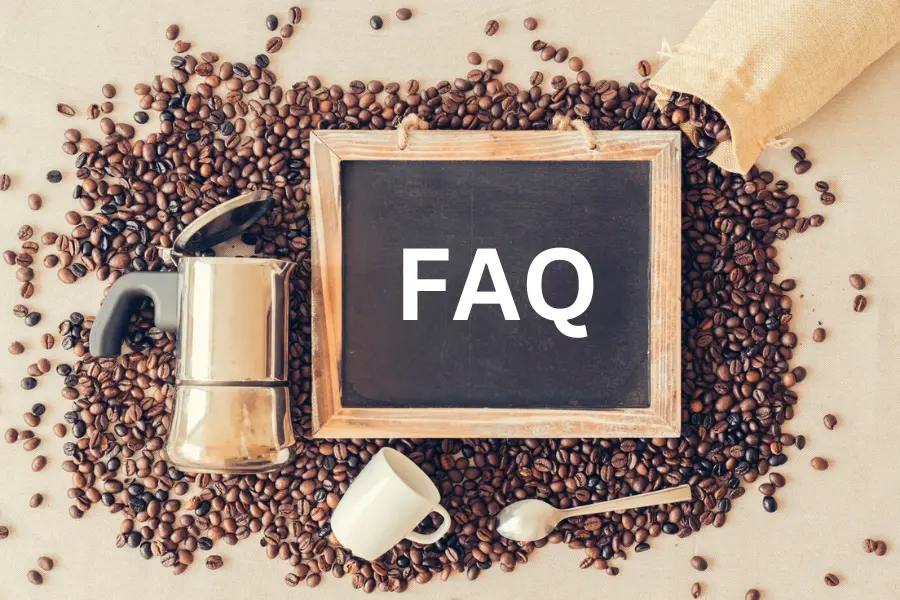
We will keep answers short and simple to the most frequent questions attempting to discern differences between ground coffee vs instant coffee. Curious as to which one might fit your taste or lifestyle better?
The one positive in favor of both instant and ground coffee is the comparatively low-calorie content, as well as other ingredients such as antioxidants. However, many types of ground coffee contain even more antioxidants and can possess the added benefit of B vitamins or a variety of important minerals. Either way, it is both trial in a healthy diet, ground coffee beans are the most nutritious.
Instant is a more convenient option due to the lack of equipment required for the brewing process and the time necessary to add hot water and serve it. Ground, which will need special tools to brew and take longer, would match instant for those whose life is best served quickly.
The answer is yes. You can swap instant coffee for ground in a pinch but it’s going to taste strong. And as they are more concentrated in total, you might want to reduce the amount. More often than not, 1 tablespoon of instant coffee can be substituted for 1 cup of brewed ground coffee but always try to sample taste first for best results.
Certain brands of instant may include additives such as preservatives, flavorings, or sweeteners. If you would like to avoid them, I advise you to check the label first. Ground coffee, including potentially pure or organic, is similarly composed almost entirely of coffee beans.

